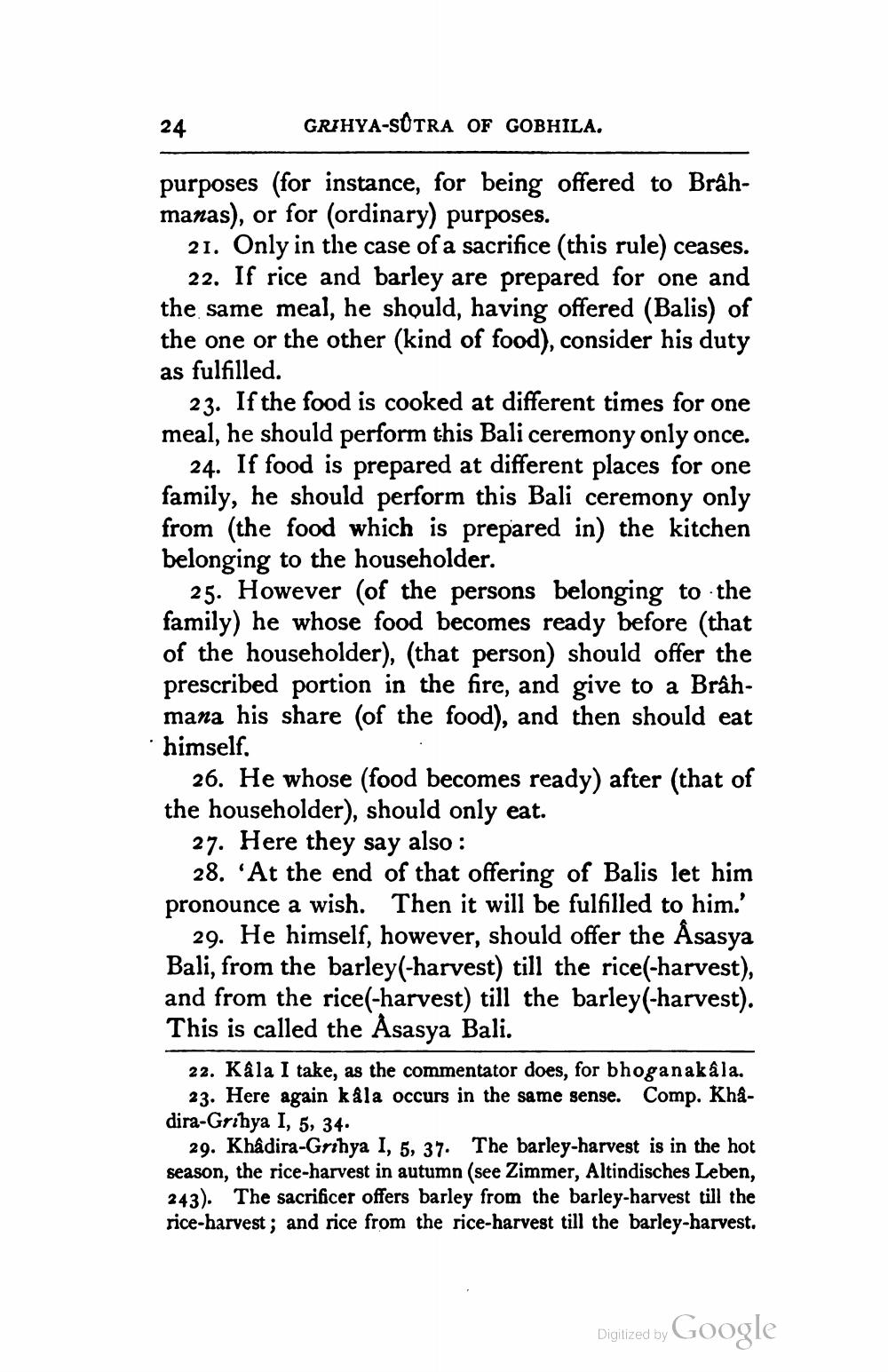________________
24
GRIHYA-SOTRA OF GOBHILA.
purposes (for instance, for being offered to Brâhmanas), or for (ordinary) purposes.
21. Only in the case of a sacrifice (this rule) ceases.
22. If rice and barley are prepared for one and the same meal, he should, having offered (Balis) of the one or the other (kind of food), consider his duty as fulfilled.
23. If the food is cooked at different times for one meal, he should perform this Bali ceremony only once.
24. If food is prepared at different places for one family, he should perform this Bali ceremony only from (the food which is prepared in) the kitchen belonging to the householder.
25. However (of the persons belonging to the family) he whose food becomes ready before (that of the householder), (that person) should offer the prescribed portion in the fire, and give to a Brâhmana his share (of the food), and then should eat himself,
26. He whose (food becomes ready) after (that of the householder), should only eat.
27. Here they say also:
28. 'At the end of that offering of Balis let him pronounce a wish. Then it will be fulfilled to him.'
29. He himself, however, should offer the Asasya Bali, from the barley(-harvest) till the rice(-harvest), and from the rice(-harvest) till the barley(-harvest). This is called the Åsasya Bali.
22. Kala I take, as the commentator does, for bhoganakala.
23. Here again kåla occurs in the same sense. Comp. Khádira-Grihya I, 5, 34.
29. Khâdira-Gríhya I, 5, 37. The barley-harvest is in the hot season, the rice-harvest in autumn (see Zimmer, Altindisches Leben, 243). The sacrificer offers barley from the barley-harvest till the rice-harvest; and rice from the rice-harvest till the barley-harvest.
Digitized by Google




